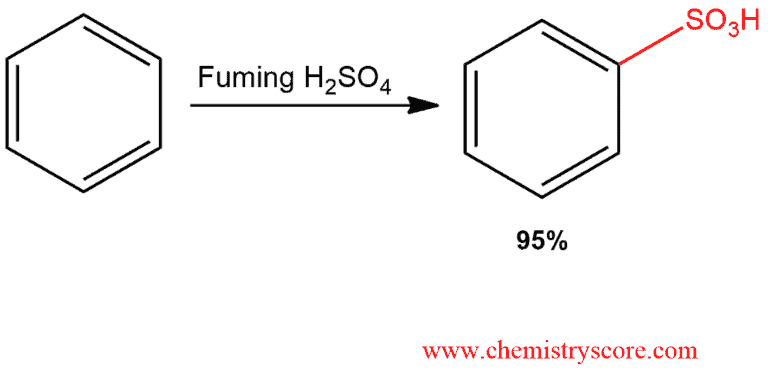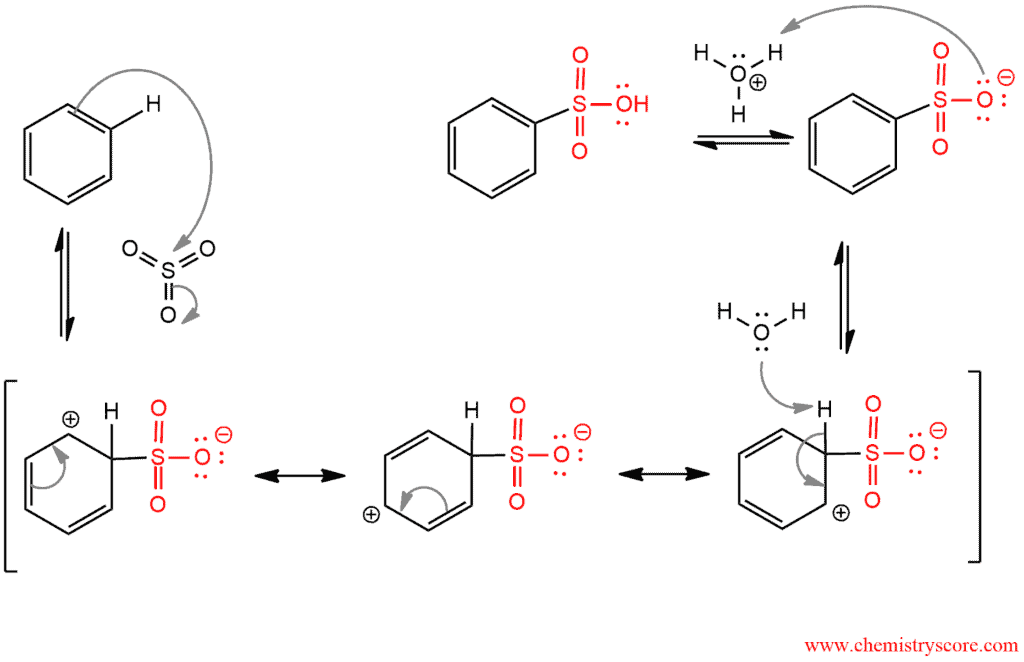Sulfonylation [SO3/H2SO4]
Sulfonylation [SO3/H2SO4] Definition:
Treatment of an aromatic molecule such as benzene with sulfur trioxide and strong acid leads to the formation of sulfonic acid in the reaction of electrophilic aromatic substitution.

Sulfonylation [SO3/H2SO4] Explained:
Concentrated sulfuric acid does not sulfonate benzene at room temperature. However, when benzene is treated with fuming sulfuric acid, a sulfonylation reaction occurs and benzene-sulfonic acid is obtained. Fuming sulfuric acid is a mixture of sulfuric acid, H2SO4 and sulfur trioxide, SO3which is very powerful electrophile. Aromatic sulfonylation is a reverse process and if benzene-sulfonic acid is heated with dilute aqueous sulfuric acid, the starting benzene is obtained.
Mechanism of Aromatic Sulfonylation
In the first step, the benzene functions as a nucleophile forming an intermediate which is deprotonated in the next step, restoring aromaticity. And the last step is protonation of the sulfonic group and obtaining the final product.
